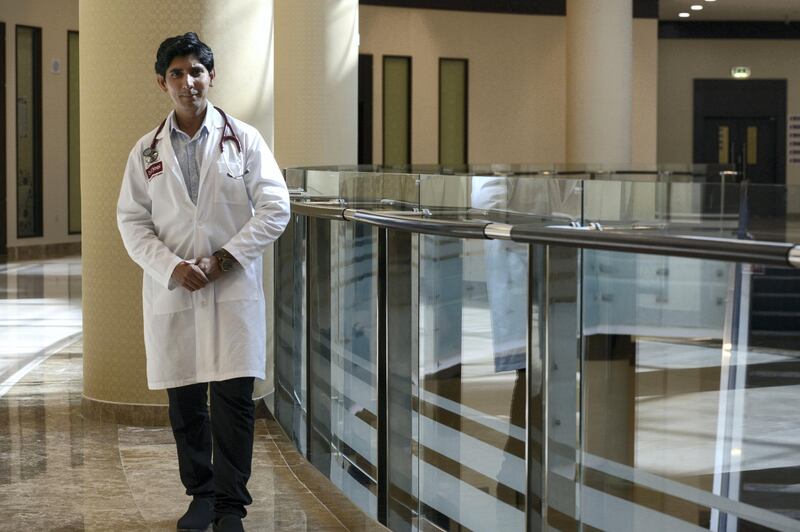Health chiefs have urged the public to get annual kidney check-ups, as doctors witness an increasing number of people that have suffered from diabetes for "years" by the time they receive medical help.
Dubai Health Authority said residents should go for an examination every 12 months and those with diabetes in their family should do so every six months.
A lack of awareness of diabetes, irregular contact with GPs and limited insurance for some has led many patients to be diagnosed far too late, medics have said.
In many cases this leads to severe complications that could have otherwise been avoided if they had sought help earlier.
Dubai Hospital said diabetics make up 45 to 48 per cent of the total number of patients on dialysis at its facility.
Dr Amna Khalifa Al Hadari, head of the nephrology department at Dubai Hospital, suggested that everyone over the age of 20 should have annual checks.:
“We see a lot of young adults suffering from this disease because the onset of early diabetes and when diabetes is uncontrolled it leads to complications such as kidney disease," she said.
"The other issue is that kidney disease is a silent disease, so it often gets detected late, which means we have no option but to begin dialysis, which affects the quality of life of the patient and also puts them at risk for developing heart disease.”
“Our message to the community is to ensure they undergo yearly health screenings and those with a family history of the disease, those who have had kidney infections or stones in the kidney, or those with co-morbidities such as diabetes, obesity and hypertension should undergo screening for kidney disease every six months to one year. In our region, I would say screening should begin as early as 20 years.”
Dr George Koshy, chief medical officer of Universal Hospitals, said one reason many patients are presenting late is the lack of insurance coverage for diabetes screening tests.
“GP’s can not preform random diabetes tests on patients,” he said, adding that there needs to be some evidence or justification for insurers to sign-off on the procedure.
Without a family history of diabetes, many insurers are likely to reject a request for tests from a clinic.
But Dr Koshy said that the public’s awareness is also lacking, despite the fact that about 20 per cent of the Emirates' population has diabetes.
Among UAE nationals specifically, a further 18.5 per cent are 'pre-diabetic' meaning they are at very high risk, according to the Dubai Diabetes Survey.
“There should be more awareness programs and as medical people, we should go out to the public and help increase awareness," he said.
Skipping on visiting a General Practitioner is also contributing to an increase in late diagnoses of diabetes in the country, doctors have warned.
Dr Faisal Dalvi, a specialist in internal medicine at Burjeel Hospital, said the majority of his patients suffered from type two diabetes long before they were diagnosed.
“They come in with very high blood glucose levels and the higher it is, the more complications can happen,” said Dr Dalvi, who listed strokes, heart attacks and blindness as potential adverse effects.
Dr Dalvi said in some cases patients are put off visiting a doctor and in others some general practitioners fail to to refer the patient to a specialist, instead assuming a healthier lifestyle will resolve the issue.
Two organisations that promote research on diabetes, have extended their collaboration with an international pharmaceutical company to train healthcare professionals across the Middle East and improve treatment for patients living with diabetes.
By 2020, more than 1,900 doctors treating type 1 or type 2 diabetes will have participated in training programmes organised by the International Society of Paediatric and Adolescent Diabetes and the Arab Society of Paediatric Endocrinology though Eli Lilly and Company.
The annual training course runs over three days with more than 100 paediatric endocrinologists in attendance.






